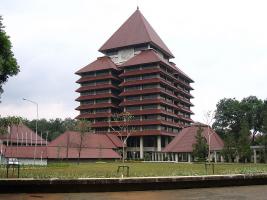The TopUniversities.com guide to higher education news from around the world.
Controversial Malaysian law banning campus political activism deemed unconstitutional
Since the passing of the Universities and University Colleges Act in 1971, students studying at Malaysian universities and university colleges have been banned from taking part in any sort of political action on campus. The act came to the world’s attention last year when four political science students (who have since graduated) at Universiti Kebangsaan Malaysia were found to be campaigning during a by-election in the district of Hulu Selangor, and were controversially arrested.
However, after the students lost an appeal at the high court last September, a three-man bench at the court of appeal has now ruled in their favour, calling the act unconstitutional (though one of the judges was in favour of the act, arguing that political activity distracted from universities’ main educational role). The ruling has been welcomed by student groups, with umbrella group Solidariti Mahasiswa Malaysia vowing to continue campaigning until the act is abolished.
The Malaysian cabinet is currently debating whether to appeal the ruling. It should be noted there are no provisions in the country against political campaigning by non-students.
Full Story: University World News
 Conference aims to establish academic ties between US and Indonesia
Conference aims to establish academic ties between US and Indonesia
Movers and shakers in American and Indonesian higher education met in Washington early last week to discuss academic collaboration between the two countries. High on the agenda was the lack of student mobility between the pair. The number of Indonesian students studying in the US has fallen to around half of what it was in 1997/98, and fewer than 200 US students studied in Indonesia in the 2009/10 academic year.
The low figures are, it was observed, the result of issues on both sides. A lack of engagement on American universities’ part (though many envisage this changing in the next five years) and issues with housing and English language provision on the Indonesian side were amongst the causes identified. Certain measures are, however, being taken to address this. The US Department of State, for instance, is increasing funding levels for the US-Indonesia Fulbright Program.
Community colleges have been earmarked as a key area where links could be established. Indonesia is looking to build 200 community colleges in the next four years to serve its rapidly expanding population. This establishment of community colleges is part of a greater plan to reform Indonesian higher education.
University attendance in Indonesia, which boasts 3,777 institutions of higher education, has increased from 3.8 million in 2005 to 5.2 million. Strengthening ties with Indonesia is a key goal of the Obama administration.
Full Story: Chronicle of Higher Education
 UK student visa regulations may be further tightened
UK student visa regulations may be further tightened
In a week in which the Universities UK action group warned that Britain’s reputation is being damaged by tightened student visa regulations , the UK Home Office has announced that further changes could be in the pipeline. The proposed changes were announced by Immigration minister Damian Green, who declared his satisfaction with the effectiveness of the measures introduced this April, last Wednesday.
Among the changes are the closure of the post-study work visa, which allows students to work for two years after graduating, tighter time limits on visas, and tighter restrictions on work placements. These changes, should they be passed, would come into effect in April next year.
The changes that came into effect in 2011 (tougher sponsor and visa regulations) have resulted in overseas student numbers falling by 11,000 and over 450 pre-degree colleges closing. Universities UK has warned that, although the drop in numbers has occurred primarily in the pre-degree sector, such programs serve as a necessary pathway to higher education, with around 40% of international students taking such courses prior to enrolling at a UK university.
Full story: Economic Times
 Indian universities to be connected through online content
Indian universities to be connected through online content
India’s government has approved a scheme that will see students at 572 universities, 25,000 colleges and 2,000 polytechnics be given access to shared electronic content and online facilities. The former category will include hundreds of hours of lectures from professors at India’s prestigious IITs.
Of course, this all hinges on students having internet access, and thus far a policy that aimed at getting 18,000 institutions online has only seen 11,600 get internet access thus far. Universities which have internet access, however, will be upgraded from copper wire to fibre optic connections. The Indian government has also launched a low-cost computer ($35) in order in order to help students become more technologically literate. Among the key goals of the planned improvements in connectivity is improving the experience of users of these budget machines.
The amount of money which will be spent has not yet been specified, with some observers speculating that the universities may incur some of the cost.
Full story: Live Mint
Lancaster University to open branch campus in China
Following in the footsteps of fellow British institution the University of Nottingham, Lancaster University has announced plans to open a branch campus in China. The institution, which will run in collaboration with Guangdong University of Foreign Studies, will teach at undergraduate and graduate level, and will host 600 students initially, rising up to 10,000 in the future.
The university will be inclined towards business programs, taught by faculty from the university’s Management School.